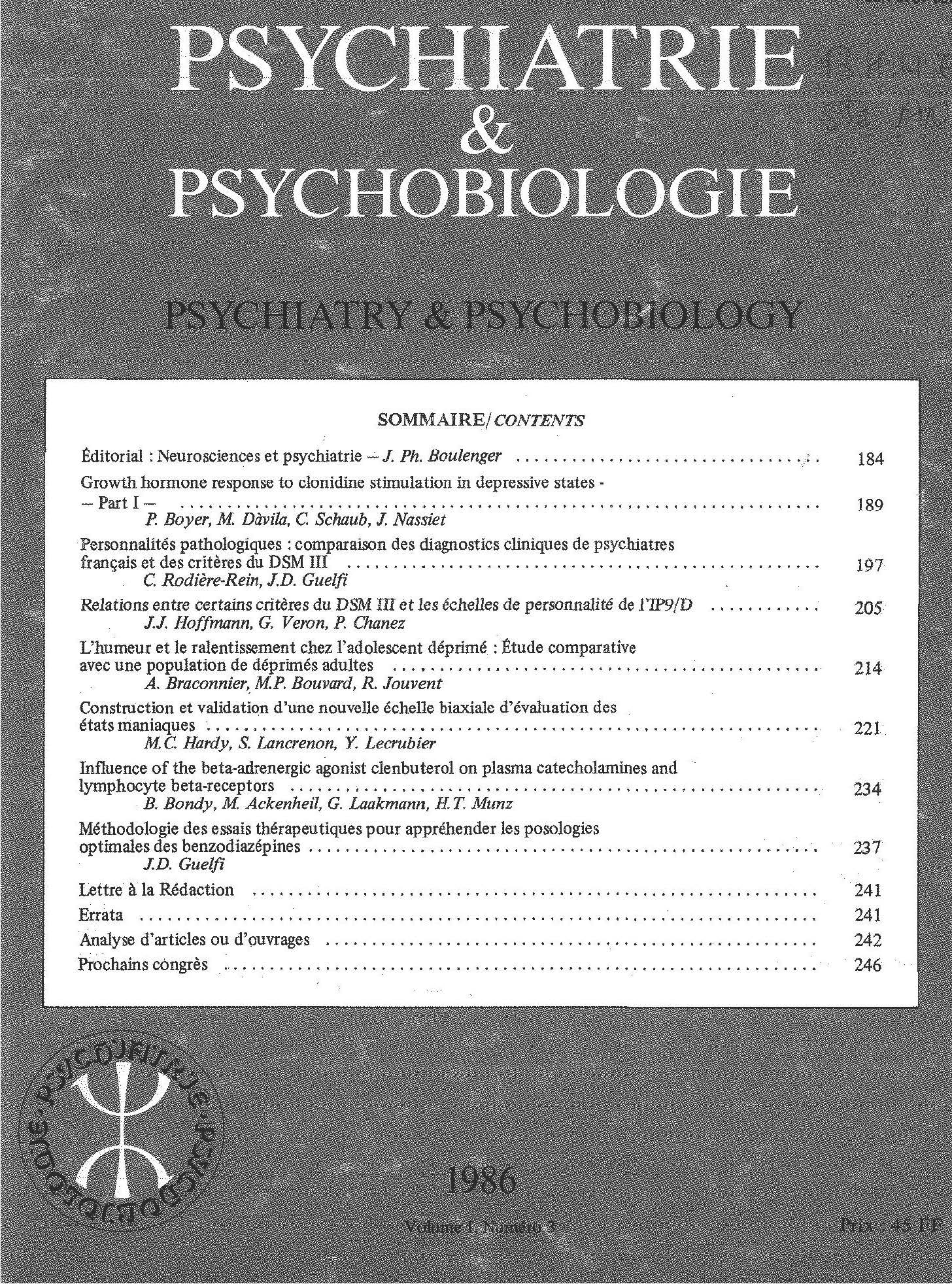No CrossRef data available.
Article contents
Intérêts et limites du test de Folstein dans l'évaluation des performances de sujets âgés, non déments et déments, hospitalisés
Published online by Cambridge University Press: 28 April 2020
Résumé
Le présent article analyse les intérêts et les limites du test de Folstein dans l'évaluation des performances de sujets âgés non-déments hospitalisés. Ce test possède une grande homogénéité interne et l'analyse factorielle permet de dégager des spécificités (mémoire récente, calcul). Les performances sont hautement influencées par l'âge et le niveau socio-professionnel pour accorder au seuil de 23 une valeur critique. Nos résultats convergent vers ceux d'Anthony, sur une population plus âgée. Des réserves doivent être apportées sur les résultats de l'analyse discriminante effectuée. Les commentaires des sujets, lors du passage du test, sont à prendre en considération et devraient être analysés de façon plus approfondie.
Summary
The present study analyses the advantages and limits of the “Mini-Mental State” test in the assessment of aged, hospitalized, demented and non-demented subjects' performances. The test's structure shows considerable internal homogeneity; factorial analysis allows to discern specific performances such as recent memory and arithmetic. The results are widely influenced by age and socio-professional level; they point to level 23 as a decisive value. Our results, in an older population sample, largely agree with Anthony's. A non-parametric discriminant analysis was carried out, but its results should be interpreted with caution. Comments expressed by the patients during the test should be considered as a complementary source of information.
Keywords
- Type
- Article original
- Information
- Copyright
- Copyright © European Psychiatric Association 1990





Comments
No Comments have been published for this article.